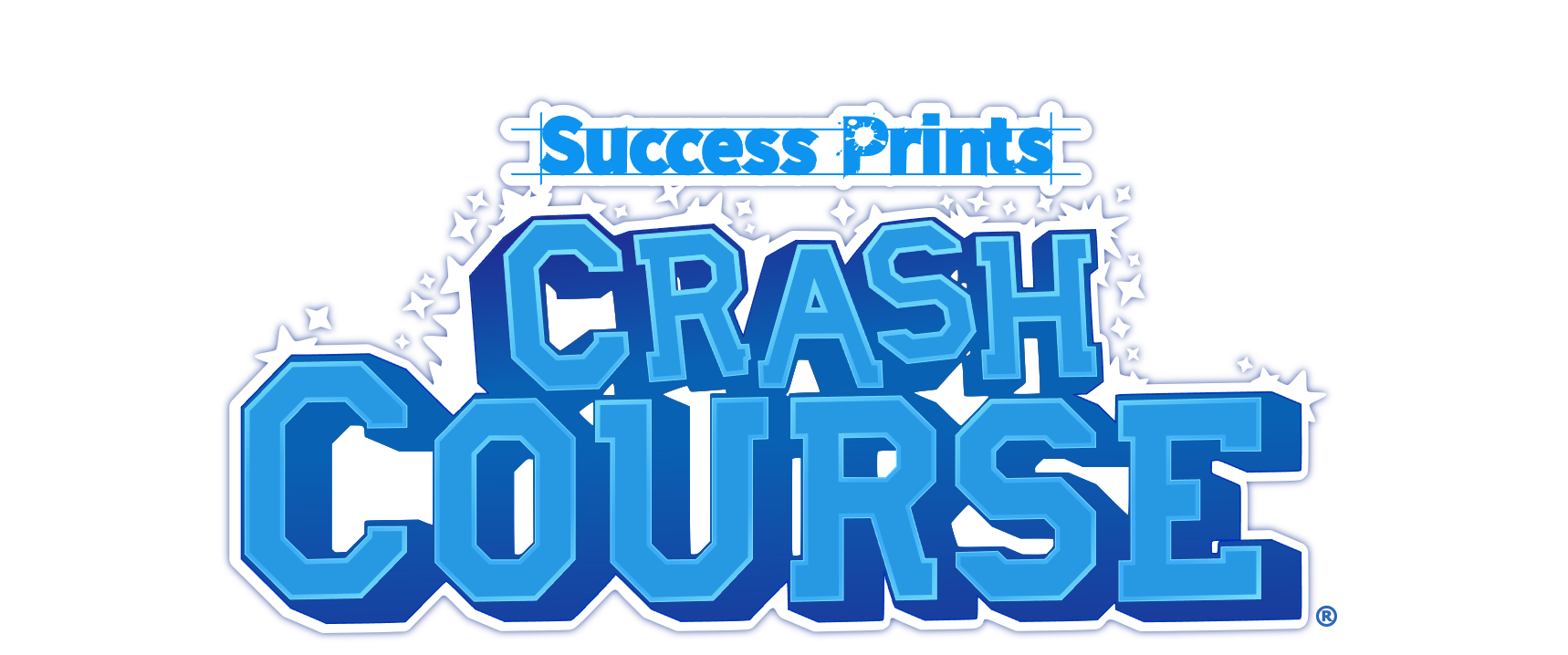
Games for College Success
PLAY THE GAME. LEARN THE RULES. SUCCEED IN COLLEGE.
Success Prints Crash Course is a playful, research-based experience that helps students navigate the ups and downs of college life—before the consequences are real. Available in both a hands-on board game and an immersive new video game, Crash Course blends entertainment with essential lessons for higher ed success.
Crash Course Board Game
Set at Tabletop University, players compete to graduate while managing their time, budget, social life, and stress. They’ll need to plan carefully, earn enough to pay tuition, and react to life’s curveballs—just like real students. Strategic thinking, smart choices, and a little bit of luck will get them across the finish line. Get the Game for Your Home or Classroom Today!
Crash Course Video Game
Now available, the video game takes place at Stratus University, a dynamic digital campus where every decision counts. Players move through daily life on campus—attending class, picking up work shifts, making friends, and responding to events that impact their GPA and wellbeing. With interactive minigames and branching scenarios, the game builds habits and awareness for real-world college success. Play Your Way to College Readiness.
WHY IT WORKS
Both formats encourage players to think critically, plan ahead, and reflect on how daily choices shape their college journey. Designed for classrooms, student orientation, and leadership programs, Success Prints Crash Course turns preparation into play.
WHO’S IT FOR?
We designed Success Prints Crash Course to be fun and informative for anyone interested in learning how to balance the many demands of college life. The game works great with the following groups:
COLLEGE STUDENTS
Perfect for the first-year seminar, the game challenges players to manage their time strategically while also learning about the many resources on campus. It’s also a fun way to build community whether in orientation groups or in the residence halls.
HIGH SCHOOL STUDENTS & FAMILIES
Great for the student preparing to go to college - whether middle or high school. The game demystifies college’s ‘hidden curriculum’ by introducing key people and programs on campus that support student success.
It’s fun to play with the whole family.
FACULTY and STAFF
Excellent for helping higher education professionals realize the many demands that students face. A perfect addition to new faculty and staff orientation or a workshop for long-time professors and staff.
HOW IT’S PLAYED
Approximating the first semester, each week players look to their schedule to decide how to spend their 12 blocks of time. Some weeks, there are social events like a football game or an art opening. Other weeks, there is an assignment due. Many weeks have both an event AND an assignment. Just like real life.
Strategizing how to use time between class, assignments, work, hobbies, social events, and campus programs/resources is the name of the game. Players must be careful as spending too much time each week without rest will result in stress!
FINDING BALANCE
In order for players to be successful in college, they must balance the social and academic spheres of their lives, including the following factors:
Fail to set aside time to sleep and you’ll gain stress!
Going to class and using academic resources earns points for Midterms & Finals.
You’ll need at least 10 cash to pay for next semester.
GPA is earned during midterms, finals, and weekly assignments.
Social is earned by attending events and building friendships!
THE CARDS
Throughout a player’s time at Tabletop University, they will encounter many challenges faced by first-year students. Successful players learn, through playing, that there is a balance to college life that helps them achieve success!
FRIENDS
THE PEOPLE WHO’VE GOT YOUR BACK.
Remember, friendships require upkeep. Some friends are always going out downtown, requiring cash upkeep. Other friends are great study buddies. At the end of the day, it’s important to pick your friends wisely.
ASSIGNMENTS
CHOOSING A MAJOR DOES NOT HAVE TO BE STRESSFUL.
Players are dealt assignments a first-year student may receive in college. This gives players a window into what the coursework for each type of major may be like when they arrive at college.
LIFE HAPPENS
THE GOOD, THE BAD, THE AWFUL, AND THE AWESOME.
You never know what’s going to happen. One week you may be taste-testing peanut butter in the food lab for cash; the next you may have lost your homework. Part of life is rolling with it.
SO MANY PEOPLE SUPPORT STUDENT SUCCESS.
From the Financial Aid Office that can assist with accessing money to pay for school to the Career Center that can help you in landing a paid internship, every campus is full of resources. It’s up to you to realize their benefits!
CAMPUS EXPLORATION
WANT THE GAME?
WHAT IS BEING SAID
About Success Prints Crash Course






















